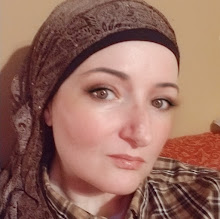
This is beyond awesome! I can blog from my DROID!
March 23, 2009 -- We Americans suffer a national eating disorder: our unhealthy obsession with healthy eating.
That's the diagnosis delivered by food author Michael Pollan in a lecture given last week to an overflow crowd of CDC scientists.
As part of an effort to bring new ideas to the national debate on food issues, the CDC invited Pollan -- a harsh critic of U.S. food policies -- to address CDC researchers and to meet with leaders of the federal agency.
"The French paradox is that they have better heart health than we do despite being a cheese-eating, wine-swilling, fois-gras-gobbling people," Pollan said. "The American paradox is we are a people who worry unreasonably about dietary health yet have the worst diet in the world."
In various parts of the world, Pollan noted, necessity has forced human beings to adapt to all kinds of diets.
"The Masai subsist on cattle blood and meat and milk and little else. Native Americans subsist on beans and maize. And the Inuit in Greenland subsist on whale blubber and a little bit of lichen," he said. "The irony is, the one diet we have invented for ourselves -- the Western diet -- is the one that makes us sick."
Snowballing rates of obesity, diabetes, and heart disease in the U.S. can be traced to our unhealthy diet. So how do we change?
Pollan says everything he's learned about food and health can be summed up in seven words: "Eat food, not too much, mostly plants."
Probably the first two words are most important. "Eat food" means to eat real food -- vegetables, fruits, whole grains, and, yes, fish and meat -- and to avoid what Pollan calls "edible food-like substances."
Here's how:
Is this good advice? Janet Collins, PhD, director of the National Center for Chronic Disease Prevention and Health Promotion, is one of the CDC officials who met with Pollan.
Collins agrees with Pollan that advice from health experts has to be simplified. And she loves the suggestions he makes.
"Some of the changes in our environment are the reasons behind our obesity epidemic," Collins tells WebMD. "Pollan's advice to eat at the table with your family and not the TV is excellent. And portions: During our grandmothers' era, plates were smaller. If you took the portions that filled their plates and put them on ours, it wouldn't look like much to eat."
Pollan, author of In Defense of Food: An Eater's Manifesto and The Omnivore's Dilemma: A Natural History of Four Meals, is professor of science and environmental journalism at the University of California, Berkeley.
Pollan says that where we've gone wrong is by focusing on the invisible nutrients in foods instead of on foods themselves. He calls this "nutritionism" -- an ideology that's lost track of the science on which it was based.
It's good for scientists to look at why carrots are good for us, and to explore the possible benefits of, say, substance X found in a carrot.
What happens next is well-meaning experts tell us we should eat more foods with substance X. But the next thing you know, the food industry is selling us a food enriched with substance X. We may not know whether substance X, when not in a carrot, is good or bad for us. And we may be so impressed with the new substance-X-filled product that we buy it and eat it -- even though it may have unhealthy ingredients, such as high-fructose corn syrup and salt.
Pollan identifies four myths behind this kind of thinking:
The trouble with the whole notion of "evil' and "blessed" ingredients is that they help the food industry sell us processed foods that are free of the evil thing or full of the blessed one. We buy them, not realizing they may contain many other ingredients that aren't good for us.
Collins agrees with Pollan's central theme that whole foods are vastly better for us than are processed foods. But our food system makes it hard for many Americans to get whole foods.
"If our food system made more whole foods at lower cost and made them more available, that would help with our public health," Collins says. "We need full-service groceries in urban centers, where people can get to them. Unfortunately, urban centers are getting filled with fast food stores and liquor stores. Pollan's rules are good, and it is one thing to eat by his rules, but making our environment such that people can live by the rules is not always easy."
Will the CDC be pushing for these kinds of changes? Yes, suggested Anne Haddix, chief policy officer at the CDC's Office of Strategy and Innovation, during the panel discussion following Pollan's remarks to the CDC.
"How we go forward on this will take some very different types of thinking than we have done in the past," Haddix said. "We have an opening we have not had for years. ... Of the federal agencies trying to address food issues, CDC is uniquely positioned. We have to step out as leaders. ... Now is the time to ramp up our efforts and reach out to people who make us uncomfortable and go for it."

